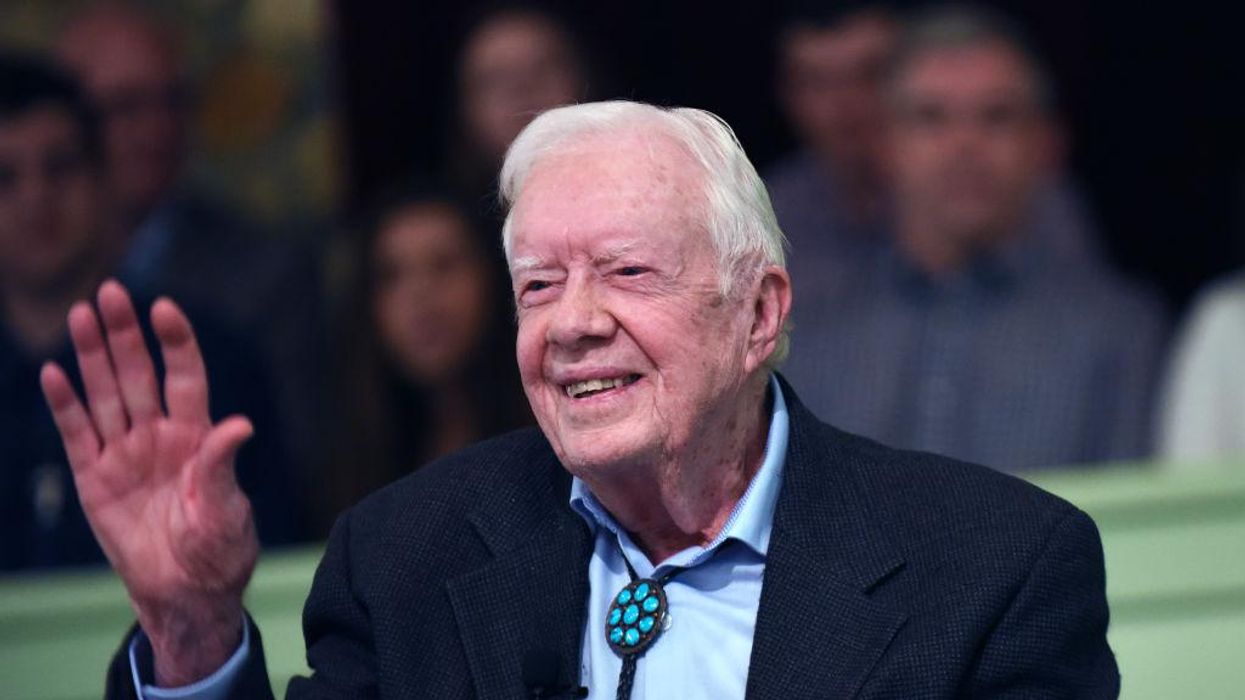
Paul Hennessy/NurPhoto via Getty Images

'I am disheartened, saddened, and angry'
Former President Jimmy Carter is speaking out against efforts by Georgia Republicans to restrict absentee voting and introduce other election reforms in the wake of the controversial 2020 election.
On Monday, the Georgia Senate passed sweeping legislation ending no-excuse absentee voting and limiting weekend voting. The state legislature is also considering measures that would strengthen voter ID requirements for absentee voters, limit the number of available ballot drop boxes and require those drop boxes to be inside early voting locations, ban nonprofits from funding elections, and more.
Democrats are opposed to these policies, accusing Republicans of using false claims about election fraud as a pretext to pass laws that will make it harder for minorities and other disadvantaged classes of people to vote. Republicans counter that these laws would ensure safe, fair, and free elections and would restore confidence in the integrity of Georgia elections after former President Donald Trump and his legal team claimed there was a "national conspiracy" of voter fraud and the election in Georgia, which Joe Biden won, was illegitimate.
Carter, who was president from 1977 to 1981, expressed his disappointment in the Republican efforts in a statement released Tuesday.
"While states must safeguard the integrity of the election process to prevent fraud, this should not be at the expense of voters' access to the polls," Carter said.
"Now, as our state legislators seek to turn back the clock through legislation that will restrict access to voting for many Georgians, I am disheartened, saddened, and angry," he continued. "Many of the proposed changes are reactions to allegations of fraud for which no evidence was produced—allegations that were, in fact, refuted through various audits, recounts, and other measures. The proposed changes appear to be rooted in partisan interests, not in the interests of all Georgia voters."
He further criticized arguments from Republicans that "selectively referenced a report prepared by a 2005 commission that I co-chaired with former Secretary of State James Baker." The report examined mail-in voting practices and recommended that more studies be done before voting by mail was adopted universally, citing some concerns about bad practices.
"In the 16 years since the report's release, vote-by-mail practices have progressed significantly as new technologies have been developed," Carter said. "In light of these advances, I believe that voting by mail can be conducted in a manner that ensures election integrity. This is just one of several ways to expand access to the voting process for voters across the state, regardless of political affiliation.
"We must not promote confidence among one segment of the electorate by restricting the participation of others," he said in conclusion.
The Georgia bill passed Monday restricts absentee voting to senior citizens over age 65, those who have a physical disability, or those who are out of town on Election Day. The bill would also require absentee voters to present a driver's license or other form of valid ID to receive their ballot. If signed into law by Gov. Brian Kemp (R), the law would effectively repeal a 2005 law supported by Republicans that permitted no-excuse absentee voting in Georgia.
About 5 million voters turned out in Georgia in the 2020 election, with approximately 1.3 million people voting remotely. President Joe Biden defeated Donald Trump by 12,000 votes. The state conducted two recounts and several audits confirming Biden's victory.
Republicans in other states are advancing similar legislation. In Iowa on Monday, Gov. Kim Reynolds (R) signed into law a measure backed by state Republicans that would shorten the early voting period from 29 to 20 days and close the polls one hour earlier on Election Day, from 9 p.m. to 8 p.m.
"It's our duty and responsibility to protect the integrity of every election," Reynolds said in a statement. "This legislation strengthens uniformity by providing Iowa's election officials with consistent parameters for Election Day, absentee voting, database maintenance, as well as other clear appeals process for local county auditors."